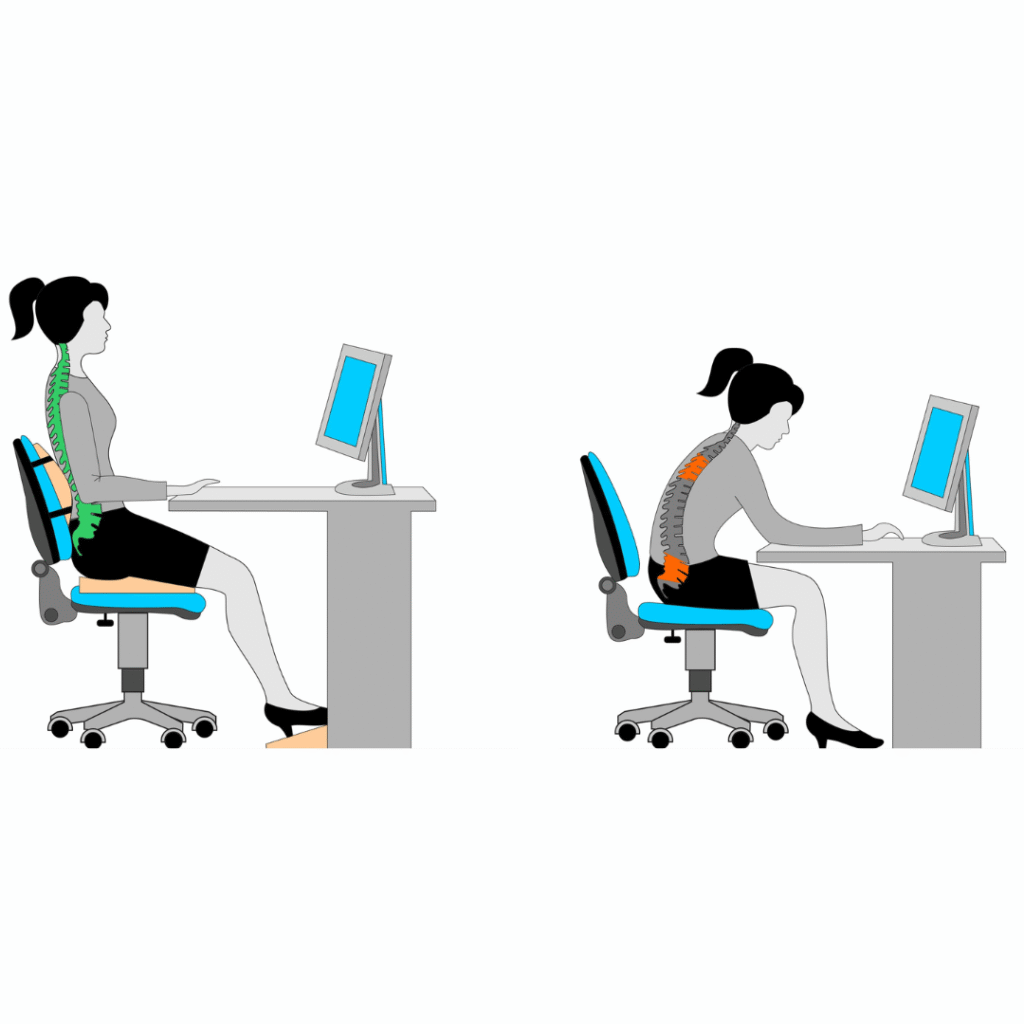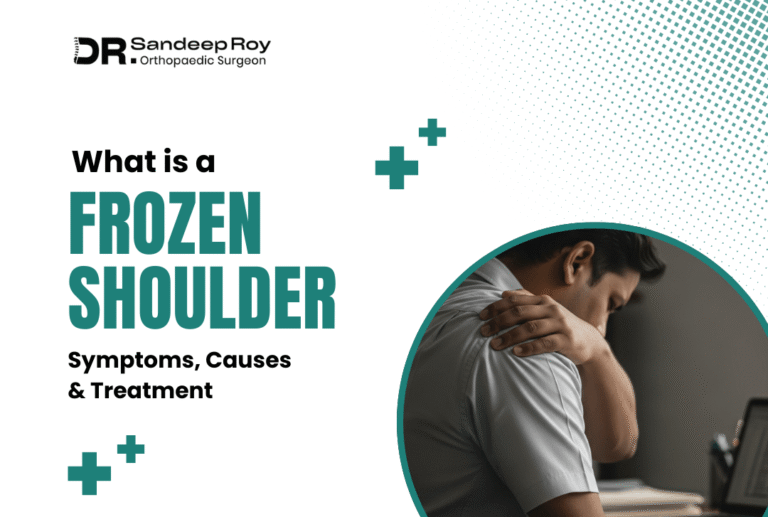Follow Us On

Tips by Orthopedic Specialist to Prevent Back Pain at Work
Back pain has become one of the most common health complaints today. Whether it is a person working in an office, a teacher standing for long hours, or someone managing household work, back pain affects people of all age groups. Studies show that a large number of working professionals in India suffer from mild to severe back pain at some stage of their career. The estimated prevalence of back pain in India is reported to range between 42% and 83% (Pain Physician Journal, 2020).

The main reason is usually wrong posture, long sitting hours, stress, and lack of movement. The workplace environment also plays a big role.
The good news is that with a few simple and careful changes in your sitting style, daily routine, and work habits, back pain can be reduced, in fact, even prevented.
In this blog, some important tips that can help you stay comfortable and protect your spine during working hours have been shared.
Maintain Correct Sitting Posture
The cause of back pain is not always something serious, sometimes it’s just the way we sit. Who hasn’t caught themselves leaning into the screen or slouching without thinking? That habit slowly builds pressure on the spine and makes the muscles stiff.
- Try to sit upright, with your back resting fully against the chair. Keep both feet flat on the floor. Shoulders should be relaxed — not lifted up.
- Avoid sitting with crossed legs for too long.
- If your office chair doesn’t give proper support, place a small cushion or even a rolled towel at your lower back. It makes a huge difference.

Adjust the Laptop and Desk
Your desk setup decides how your back and neck will feel after a long workday. If the screen is too low, you will keep bending your neck without realizing. This puts extra pressure on the spine.
- Keep the screen straight at your eye level. The keyboard and mouse should be at your elbow level.
- Try to sit at an arm’s length distance from the screen.
- If you work mostly on a laptop, invest in a laptop stand or connect an external keyboard. It’s a small change but it saves your back in the long run.
Limit Mobile Phone Strain
We all spend a lot of time looking at our phones at work and home. But bending the neck down for long hours creates pressure on the upper back and neck. This problem is often called “text neck.”
- Try holding the phone at your eye level.
- Avoid doing long typing or reading tasks on your phone whenever possible.

Take Short Breaks and Move Around
Honestly, sitting for hours without moving is a killer for the back. Human body just isn’t designed for that.
- Try to stand up every 30–40 minutes and move, for maybe to drink water or stretch a little.
- Walk around for a few minutes or roll your shoulders, as these simple activities won’t just relax your spine but they will refresh your mind too.
- Stretch your arms, neck, and back for a few seconds.These small breaks improve blood circulation, reduce stiffness, and refresh the mind.
Practice Simple Workplace Stretches
You don’t have to be in a gym to keep your back healthy. Simple stretches at your desk are more than enough.
- Standing stretch: Place hands on hips and bend backward gently.
- For your neck, just tilt your head gently side to side and then forward. Don’t rush it, keep it easy.
- Do a few shoulder rolls—slow circles forward and backward.
- While sitting, try a back stretch: sit straight, reach your arms out in front, and bend a little.
- If you’re standing, put your hands on your hips and lean back slightly for a light stretch.
Stay Active Outside Office Hours
What you do once office hours end matters a lot too. If you’re sitting the whole day and then just lying down at home, your back won’t thank you.
- Even 20–30 minutes of light activity helps—walk, do some yoga, cycle, or swim.
- Also, avoid lying down immediately after coming back from work
Reduce Stress
Although, stress may not look directly connected to back pain, but in reality it does affect muscles directly. Stress causes tightness and makes pain worse.
- Take a pause. Do some deep breathing, meditation, listen to calming music, or spend time on hobbies you enjoy, whether that’s sketching, dancing, or going to the gym.
- These small practices help relax the mind. And when your mind is at peace, your body naturally feels healthier too.

Wear Comfortable Footwear
- If your work requires standing for long hours, it is very important to wear the right and comfortable footwear.
- Hard soles, high heels, or completely flat slippers can increase strain on the back.
- Choose shoes or sandals with a proper cushion so that it provides support.
Make Small Workplace Changes
Sometimes, a few small adjustments in your work environment can prevent long-term problems:
- Keep a water bottle near you. This will also remind you to take small walking breaks.
- Avoid keeping everything within reach. Standing up to collect files or documents encourages movement.
When to Seek Medical Help
Mild back pain usually improves with lifestyle changes, but sometimes it needs medical attention. Consult an orthopedic doctor if:
- Pain continues for more than 2–3 weeks.
- You feel numbness or tingling in the legs.
- Pain disturbs your sleep.
- Walking or standing becomes difficult.
- Timely treatment is very important to prevent serious spine problems.
Back pain is really common these days, and it’s not something you should ignore. If you leave it, it can mess with your work, mood, and even simple daily things. The good part is—small changes like sitting straight, taking short breaks, moving around, and staying relaxed can help a lot. And if the pain doesn’t go away, don’t suffer through it. So, if your back pain doesn’t go away, don’t just wait and suffer, take advice from an expert orthopedic doctor immediately.


